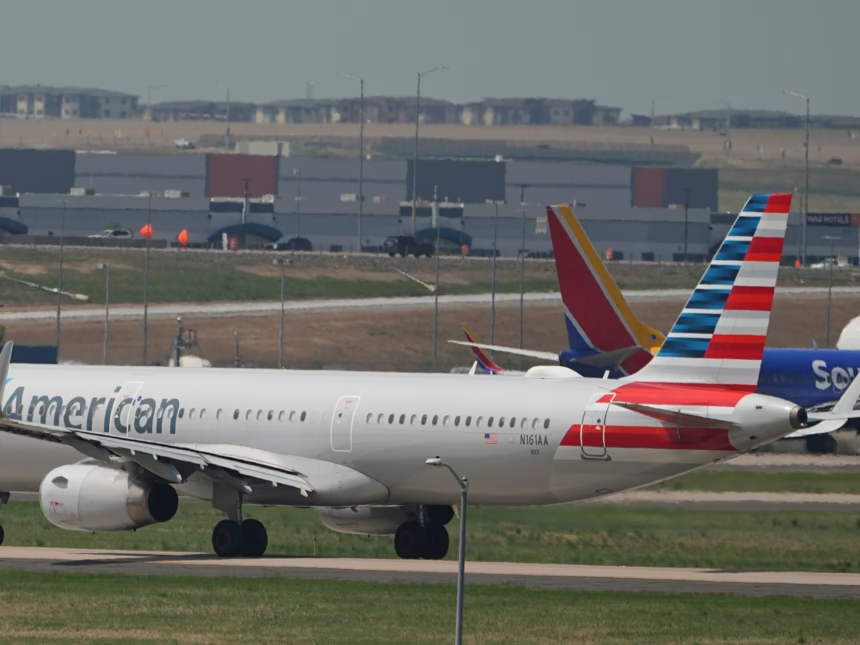A day after the United States bombed three Iranian nuclear facilities, joining Israel in its war on Tehran, the Middle East region remains on edge.
Israel and Iran continued to trade attacks, and Iranian President Masoud Pezeshkian threatened retaliation against the US, saying, “the Americans must receive a response to their aggression”.
Since June 13, when Israel launched its current wave of attacks on Iran, more than 400 Iranians have been killed and at least 3,056 others wounded, while at least 24 Israelis have been killed in Iranian retaliatory strikes.
Amid the intensifying conflict, air traffic in the region has thinned dramatically, including over Iraq, Syria, Lebanon, and Jordan, affecting areas well beyond the Palestinian territory, Iran, and Israel.
So, are airlines stopping flights to the Middle East? What is the importance of this aviation zone? And how long can airlines suspend flights to parts of the Middle East?
Are flights to Middle Eastern destinations suspended?
Since Israel attacked Iran on June 13, air traffic has been disrupted over many Middle Eastern countries. The initial Israeli attacks forced Iran, Iraq, and Jordan to close their airspaces.
After the hostilities began, Israel’s main airport, Ben Gurion in Tel Aviv, was shut, and its flag-carrier, El Al, suspended all flights to and from Israel. Since then, Israel briefly reopened its airways, at times, to airlift stranded passengers.
Meanwhile, as Israel and Iran continued to launch missiles at each other, hundreds of flights that were scheduled to pass through the Middle East were cancelled or diverted.
Many international carriers have either halted or rerouted flights that normally fly through the Gulf corridor.
- British Airways and Air France-KLM cancelled flights on their Dubai, Doha, and Riyadh routes over the weekend, allowing passengers to rebook on revised schedules.
- One British Airways flight from London to Dubai was diverted to Zurich after entering Saudi airspace, while another was forced to return to Heathrow after reaching Egyptian airspace. The airline has suspended services to Bahrain, with flights to some Gulf destinations paused until at least the end of June.
- Singapore Airlines has suspended its Singapore-Dubai service after a security review.
- American Airlines has suspended flights to Qatar, and United Airlines to Dubai.
- Lufthansa has suspended its flights to Tehran and Tel Aviv and has said it will avoid Iranian, Iraqi, and Israeli airspace.
What about regional airlines?
Emirates announced it has “temporarily suspended all flights” to Tehran, Baghdad, and Basra through June 30. FlyDubai also halted services to Iran, Iraq, Israel, and Syria until late June.
Qatar Airways posted a notice that it had “temporarily cancelled flights to Iran, Iraq and Syria”. It cited the “current situation in the region”, emphasising passenger and crew safety. The airline has stated that it “fully complies with international aviation regulations for safe aircraft routes”.
Abu Dhabi-based Etihad Airways said it has suspended its entire Abu Dhabi-Tel Aviv schedule until July 15. The airline confirmed in a statement that it is “assisting affected guests with alternative travel arrangements” and warned that further schedule disruptions could occur; it reiterated that “the safety of our guests and crew remains our highest priority”.
Other regional carriers have acted similarly: Oman’s SalamAir suspended all flights to Iran, Iraq, and Azerbaijan through June 30 “due to the evolving regional situation”, and Air India diverted or turned back several flights that normally cross Iranian airspace.
Why are airlines suspending or rerouting flights?
Global aviation safety bodies, including Safe Airspace, have issued alerts over heightened risks after the US strikes and the potential for Iranian retaliation. The organisation has said ongoing missile and drone activity in the region presents a threat to commercial flights, particularly those operated by US-based airlines.
The region, Iran in particular, has a history of deadly aviation incidents brought about by military tensions.
In 1988, an Iran Air flight was shot down by a US naval ship. US forces had breached Iranian waters and fired at the civilian Iran Air flight IR655, headed to Dubai on July 8. All 290 people on board were killed. The US, which claimed it was a mistake, did not, however, formally apologise or claim responsibility.
In January 2020, an Iranian missile accidentally brought down a Ukrainian passenger jet, killing 176 people, again amid heightened tensions between Tehran and Washington. The US had assassinated Iranian general Qassem Soleimani days earlier.
How important is the Middle East as an aviation corridor?
It is vital for global aviation, said Alex Macheras, an aviation analyst and consultant based in the Middle East.
“When access to this corridor is disrupted, there is an immediate global ripple effect: aircraft are pushed further south, flight times stretch, and costs surge,” Macheras told Al Jazeera. “For airlines, time is money — and detours cost both.”
The importance of the Middle East air corridor as a transit route for flights between Europe and Asia has grown further after Russian and Ukrainian airspace largely became off-limits for international carriers following Moscow’s 2022 invasion of Ukraine. As a result, Europe-Asia flights have been squeezed into just a few narrow channels, passing through the Middle East.
“Iranian and Iraqi skies sit on the natural axis between east and west, offering the most direct path for passenger and cargo flights linking Europe with South Asia, Southeast Asia, and beyond,” Macheras said.
Now, with these air corridors affected too, airlines and passengers should brace for impact, say experts. Rerouting flights increases flight time, fuel burn, and crew costs. A potential spike in oil prices after the US attacks on Iran will also affect the airlines’ fuel costs.
However, Macheras added, it is important to remember that the Middle Eastern airlines have been here before.
“This isn’t new territory. Whether it’s airspace closures, geopolitical flashpoints, or unexpected security escalations, the Gulf carriers have developed the operational maturity to respond with speed and precision,” he noted.
In fact, carriers are already adapting.
How are airlines adapting to the new crisis?
While there is almost no air traffic over Iran, Iraq, Syria or Israel now, Macheras said, “Saudi airspace has become the region’s new backbone, absorbing east-west traffic displaced from Iran and Iraq.”
Recent flight-tracking data highlight the congestion shift. Flightradar24 reports that daily overflights of Saudi Arabia roughly doubled from about 700 in mid-May to 1,400 per day after Iran and Iraq closed their skies on June 13.
Macheras noted that regional airlines have adapted to this situation in recent years by smoothly shifting wide-body traffic through this corridor. “The result: passengers experience no delay, no disruption, and no visible sign of what’s happening above. It’s all done in a way that shields the passenger from the chaos unfolding around it,” he said.
Flights over Afghanistan, a lesser-used corridor, spiked by nearly 500 percent after June 13, from about 50 to 280 flights daily.
Meanwhile, several Europe-Asia flights are now being rerouted north via the Caspian Sea — through Turkiye, Azerbaijan and Turkmenistan — or south via the Red Sea and Saudi Arabia.
Regional carriers have also issued travel advisories and revised their schedules in response to airspace closures. Some carriers have quietly rerouted flights without public pronouncements.
None of this is surprising, said Macheras.
“For Gulf carriers specifically, adaptation is no longer reactive,” he said. “It’s embedded. The systems are now built for it.”








